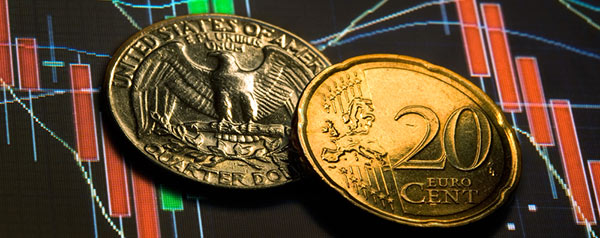The Euro to US Dollar (EUR/USD) exchange rate fell sharply on Thursday as the US Dollar rallied from overnight losses and as concerns over a possible ‘Grexit’ harmed sentiment towards the single currency.
The Euro to US Dollar (EUR/USD) exchange fell to a session low of 1.0630
Overnight the EUR/USD exchange surged to 1.0920 after the US Federal Reserve delivered a dovish policy statement and left interest rates unchanged.
Traders sold off the ‘Greenback’ after the Fed downgraded its economic growth and inflation projections and said that just because the term ‘being patient’ was dropped from its statement does not mean it has decided on when to begin hiking interest rates. Because of the comments, the US Dollar fell sharply against the majority of its major peers.
As the European trading session got under way however, the US Dollar began to rally strongly as despite the Fed’s dovish analysts are still predicting that a rate hike will be carried out this year and deemed the broad selloff as overdone.
‘I just don’t see any price or wage pressure out there. June is not off the table but it is unlikely. September is the most likely time for the first rate hike. They might get one hike in this year, maybe two,’ said Craig Dismuke, chief economist at Vining Sparks.
Sentiment towards the Euro also came under pressure from concerns over the Greek situation. European Union leaders are meeting in Brussels to discuss the nation’s bailout but as both Athens and its creditors appear to be holding fast, the likelihood of any deal being reached today is highly unlikely.
It was revealed that up to €300 million was withdrawn out of Greece on Wednesday; it was the largest withdrawal of cash from the nation since last month’s bailout extension was agreed to.
‘Depositors are nervous already and the suggestion that Greece could follow the example of Cyprus two years ago made them react,’ said a banker in an interview with the Financial Times
Also putting pressure on the single currency was data released by Eurostat, which showed that wages in the 19-member currency bloc fell in the final three quarters of last year. Wages were 1.0% higher than in the fourth quarter of 2013, a slowdown from the 1.4% rate of growth recorded in the three months through September. If the falling trend continues then the likelihood of the Eurozone, sliding into deflation increases.
Softer than forecast US jobless claims, and Philadelphia Fed Manufacturing data did little to slow the ‘Greenback’s’ rally.



